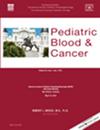Hypoalbuminemia and Nutritional Status in Children With Cancer
Abstract
Background
In children with cancer, poor nutritional status adversely affects outcomes. Hypoalbuminemia is common in pediatric oncology patients, and in some groups is associated with inferior survival rates. We sought to determine if serum albumin associates with body mass index (BMI) percentile and if combining serum albumin and BMI is associated with survival.
Methods
We performed a single institution, retrospective review of pediatric oncology patients and collected data regarding baseline BMI, serum albumin, and survival outcome. Combining baseline BMI and serum albumin, we classified patients’ nutritional status as adequately nourished, mildly/moderately depleted, and severely depleted.
Results
In a cohort of 490 pediatric oncology patients, hypoalbuminemia prevalence was 49%. Serum albumin did not associate with BMI percentile for age. Overall, those defined as severely depleted had an increased risk of relapse or death at 3 and 6 months from chemotherapy initiation compared with those defined as adequately nourished (hazard ratio [HR] = 2.37, 95% CI 1.29–4.37 at 3 months, p = 0.006; HR = 1.77, CI 1.11–2.82 at 6 months, p = 0.017). Statistical analyses suggest the inferior survival in those deemed severely depleted was primarily driven by hypoalbuminemia rather than BMI.
Conclusions
In this cohort of pediatric oncology patients, serum albumin did not correlate with BMI. Severe hypoalbuminemia is an adverse prognostic factor. Baseline BMI had a minimal impact on relapse-free survival and overall survival, independently or in combination with hypoalbuminemia.


 求助内容:
求助内容: 应助结果提醒方式:
应助结果提醒方式:


